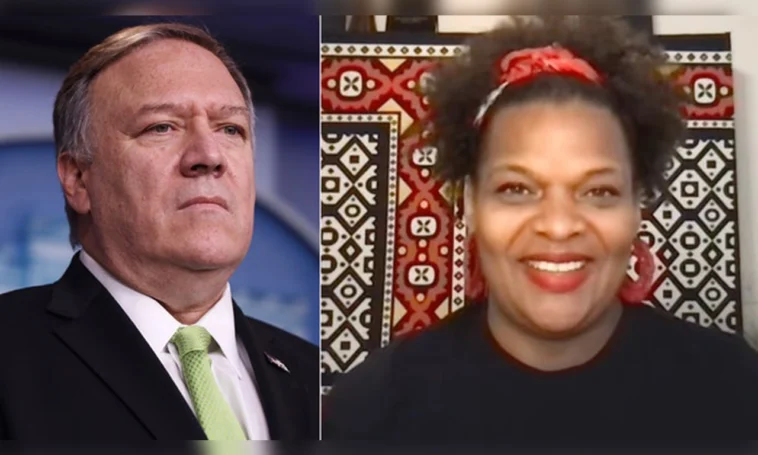Pompeo warns diversity chief who espoused anti-American ‘Marxist dogma’ will ‘destroy the State Department’. Former Secretary of State Mike Pompeo’s recent comments regarding the hiring of Zakiya Carr Johnson as the State Department’s chief officer of diversity, equity, and inclusion have sparked a contentious debate. Pompeo’s staunch opposition to Carr Johnson’s appointment revolves around his concerns about its potential ramifications on the effectiveness of the State Department and the safety of the United States.
His remarks underscore a broader discussion about the role of diversity, equity, and inclusion (DEI) initiatives in government institutions and their perceived impact on organizational culture and mission execution.
At the center of Pompeo’s critique is his assertion that Carr Johnson’s past remarks, including labeling the United States as a “failed historical model” embedded with racism and colonialism, are indicative of a divisive and un-American ideology.
Pompeo contends that Carr Johnson’s worldview aligns with what he describes as a “Marxist dogma” that seeks to undermine traditional American values and institutions. This characterization reflects a broader ideological divide in American politics, where debates over issues such as critical race theory and social justice often intersect with concerns about national identity and historical narratives.
Pompeo’s criticism extends beyond Carr Johnson’s personal beliefs to the potential impact of her appointment on the State Department’s workforce and operations. He warns of a demoralizing effect on staff morale and the likelihood of talented individuals leaving the organization if DEI considerations overshadow merit-based criteria in hiring and promotion decisions.
Pompeo’s concerns about the politicization of personnel decisions echo broader criticisms of identity politics and affirmative action, where questions of fairness and meritocracy intersect with issues of diversity and representation.
“I don’t think [the State Department] frankly believes it. I think they’re catering to the progressive left of their base in an election year, and the harm is that they will destroy the State Department in this way, and, frankly, the capacity of America to deliver the diplomacy that other nations around the world are counting on,” he told Fox News Digital.
Furthermore, Pompeo raises alarm about the State Department’s implementation of a mandate requiring employees to demonstrate their commitment to DEI principles to be eligible for promotion or higher pay. He characterizes this policy as “dangerous,” arguing that it stifles free expression and imposes ideological conformity on employees. Pompeo’s objections to what he perceives as compelled speech and ideological coercion reflect broader debates about the boundaries of free speech and diversity training in the workplace.
In contrast to Pompeo’s criticisms, the State Department has defended Carr Johnson’s appointment, emphasizing her expertise in the field of DEI and her potential to promote a more inclusive organizational culture. This response reflects a commitment to diversity and inclusion as core values of the Biden administration’s approach to governance. However, the controversy surrounding Carr Johnson’s appointment highlights the challenges of navigating competing priorities and ideologies within government institutions.
The debate over Carr Johnson’s hiring also raises questions about the role of diversity, equity, and inclusion initiatives in fostering a more representative and effective government. Proponents argue that diversity in leadership and decision-making processes enhances organizational performance and responsiveness to the needs of diverse constituencies. They contend that initiatives like Carr Johnson’s appointment are essential steps toward addressing systemic inequities and ensuring that government institutions reflect the diversity of the American population.
Critics, however, raise concerns about the potential for DEI initiatives to prioritize identity-based considerations over merit and qualifications, leading to a politicization of personnel decisions and undermining organizational effectiveness. They argue that diversity should be pursued in a manner that does not compromise the integrity of hiring and promotion processes or prioritize symbolic gestures over substantive change.
Ultimately, the controversy surrounding Zakiya Carr Johnson’s appointment highlights broader debates about the intersection of ideology, identity, and governance in contemporary American politics. As government institutions grapple with the challenges of fostering diversity, equity, and inclusion, they must navigate competing visions of national identity and the role of government in addressing historical injustices. The outcome of these debates will shape the trajectory of American governance and the pursuit of a more inclusive society in the years to come.



Join the Community and Be a Part of the Conversation
You must be logged in or registered to post a comment.